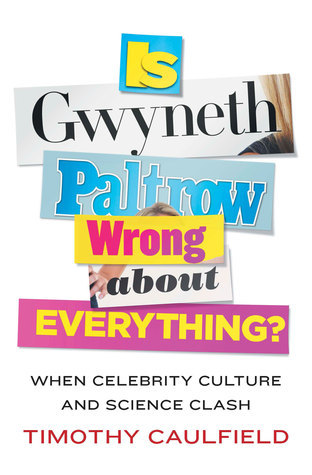What do you think?
Rate this book


304 pages, Hardcover
First published January 13, 2015
I thought about structuring the entire book around Gwyneth's antics. But two things changed my mind. First, poor Gwyneth got a lot of flak in 2013 and 2014. She didn't need more hurled in her direction, even if the hurler was an obscure Canadian academic. Second, getting near Gwyneth isn't easy. I tried. Often.
1. Don't smoke.
2. Stay active, exercise regularly and include some vigorous activities.
3. Eat a balanced and calorie-appropriate diet that includes lots of fruits and vegetables, whole grains, lean protein, etc.
4. Maintain a healthy weight (tough, I know).
5. Wear sunscreen.
6. Get an appropriate amount of sleep (which, for most, is between seven and nine hours a night).
That is it. Everything else is either total baloney or of such marginal value when compared to the impact of these actions as to be nearly irrelevant. For example, if you smoke or don't wear sunscreen, worrying about eating organic food is like Wile. E. Coyote using that tiny, broken umbrella to minimize the effects of a house-sized boulder falling on his head.
Celebrity culture, at best, is selling us a tiny, broken umbrella.
It seems that we are caught in a big, self-perpetuating celebrity-fueled cycle that goes something like this: declining social mobility and diminishing life options lead to increasing dreams of celebrity fame and fortune. This, in turn, enhances the power and allure of celebrity, which cause a focus (perhaps with an ever-increasing narcissistic resolve) on extrinsic aspirations that leads to less happiness and distracts us (and society more generally) from actions that may enhance social mobility, such as education and advocacy for social change.